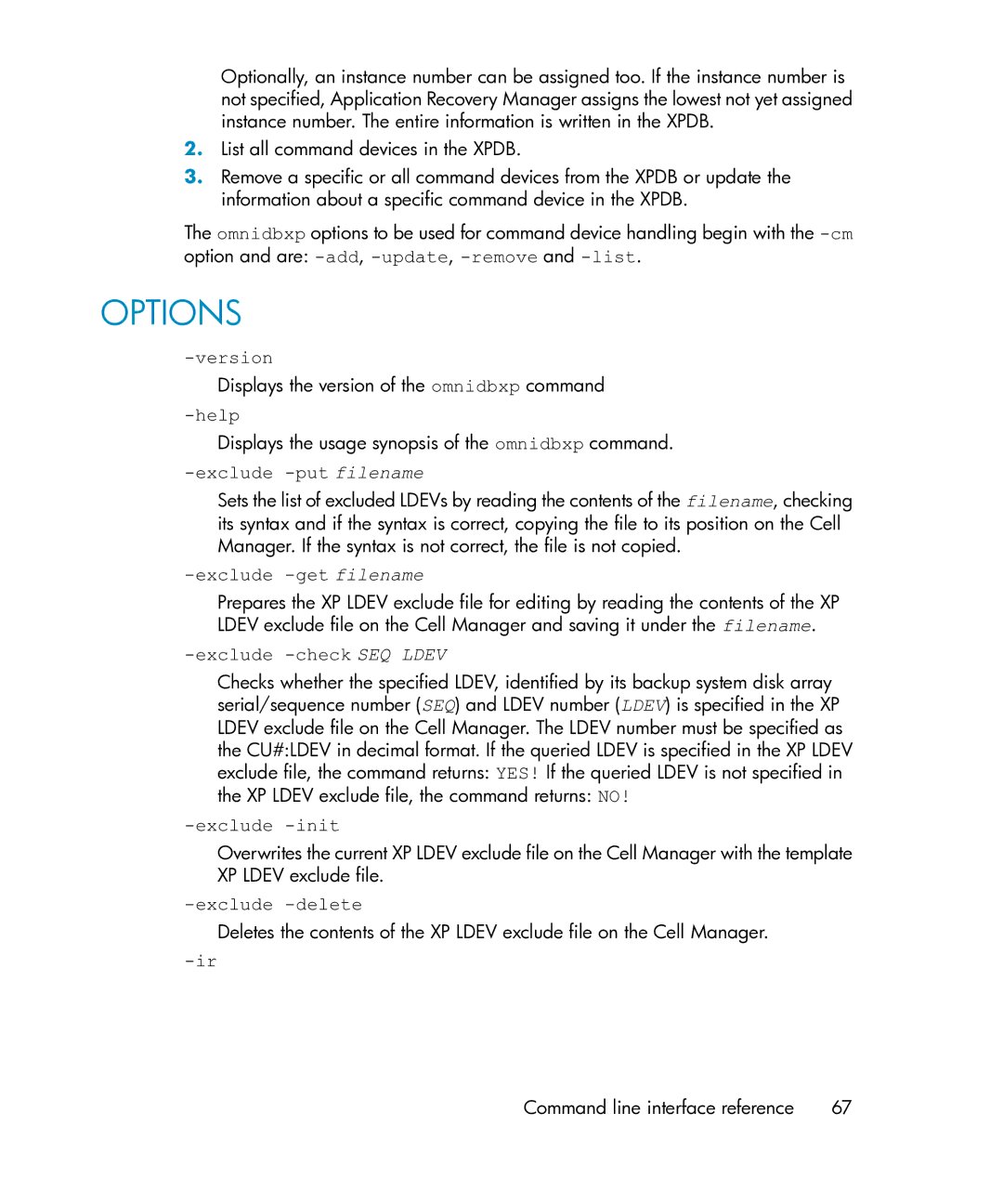Optionally, an instance number can be assigned too. If the instance number is not specified, Application Recovery Manager assigns the lowest not yet assigned instance number. The entire information is written in the XPDB.
2.List all command devices in the XPDB.
3.Remove a specific or all command devices from the XPDB or update the information about a specific command device in the XPDB.
The omnidbxp options to be used for command device handling begin with the
OPTIONS
Displays the version of the omnidbxp command
Displays the usage synopsis of the omnidbxp command.
-exclude -put filename
Sets the list of excluded LDEVs by reading the contents of the filename, checking its syntax and if the syntax is correct, copying the file to its position on the Cell Manager. If the syntax is not correct, the file is not copied.
-exclude -get filename
Prepares the XP LDEV exclude file for editing by reading the contents of the XP LDEV exclude file on the Cell Manager and saving it under the filename.
-exclude -check SEQ LDEV
Checks whether the specified LDEV, identified by its backup system disk array serial/sequence number (SEQ) and LDEV number (LDEV) is specified in the XP LDEV exclude file on the Cell Manager. The LDEV number must be specified as the CU#:LDEV in decimal format. If the queried LDEV is specified in the XP LDEV exclude file, the command returns: YES! If the queried LDEV is not specified in the XP LDEV exclude file, the command returns: NO!
-exclude -init
Overwrites the current XP LDEV exclude file on the Cell Manager with the template XP LDEV exclude file.
-exclude -delete
Deletes the contents of the XP LDEV exclude file on the Cell Manager.
Command line interface reference | 67 |
